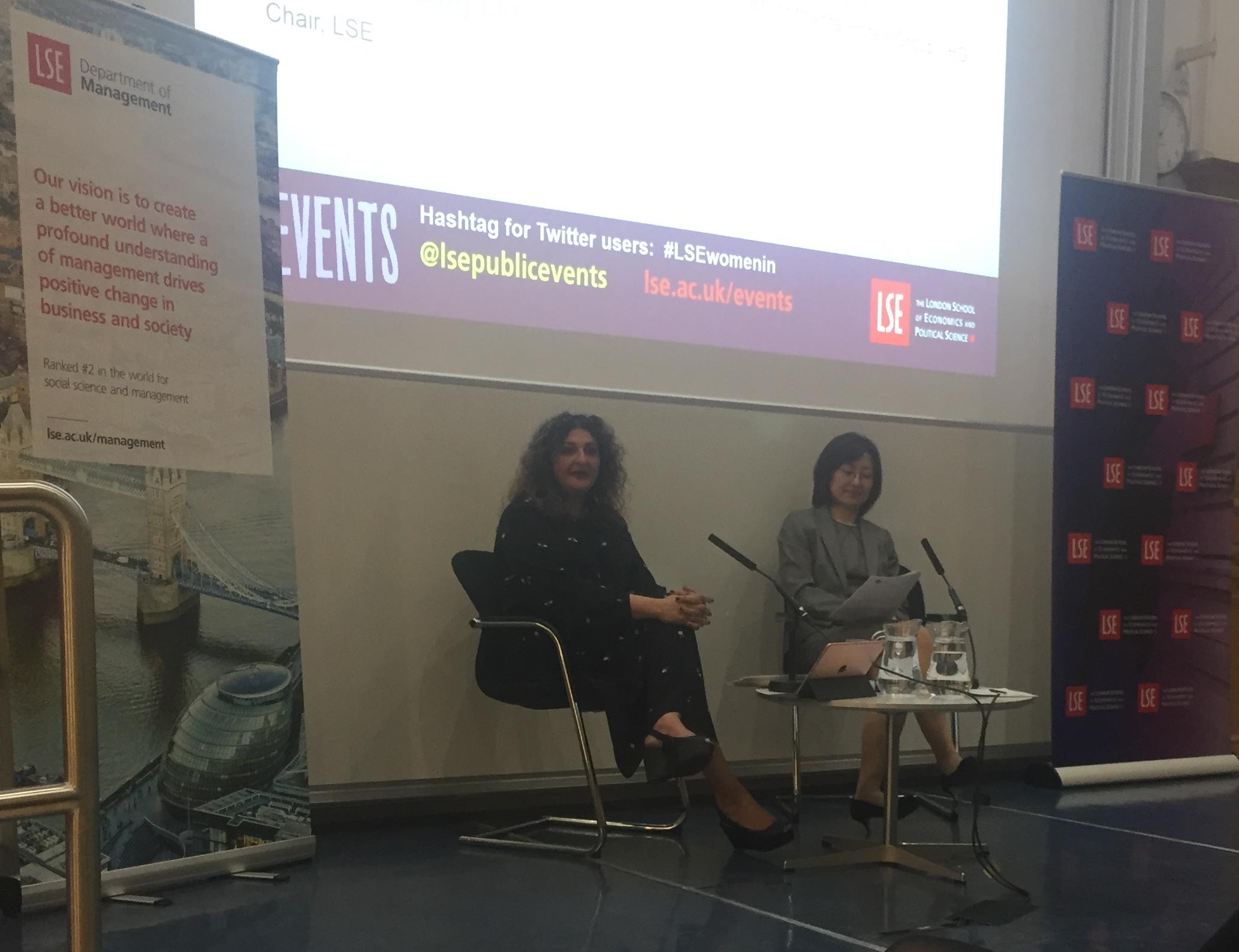I’m a student in the Department of Management at the London School of Economics, and as part of the department’s 10 year anniversary celebrations I’m writing this blog post to share my views on the top 10 insights which managers can take from research, and apply to our everyday lives.
Looking for answers, I studied and listed down 10 key takeaways from research by the faculty of the Department of Management. I’ve grouped the top ten themes that suggest a set of priorities that will help all those working in the field of management to succeed in their careers.
1. To make things happen – Set Proactive Goals!
In Proactivity at Work: making things happen in organizations by Sharon Parker and Uta Bindl, the authors develop on existing perspectives on this topic, by identifying proactivity as a goal-driven process. Taking control of the situation, making things happen by actively anticipating activities, preventing problems and seizing opportunities, all recapitulate to “being proactive”.
This process involves both the setting of a proactive goal, and striving to achieve that goal. The authors find that goals individuals can pursue vary on two dimensions: the future they aim to bring about, and whether the self or the situation is being changed. They go on to further suggest that motivation statements such as “can do”, “reason to”, and “energised to” act as triggers that generate these proactive goals.
2. Mentally simulate the actions you need to take to achieve your goals, not the end-result!
In the review Mental simulation as a substitute for experience by Heather Barry Kappes and Carey K. Morewedge, four cases are examined which demonstrate that mental simulation acts as a substitute for the corresponding real experience. In order to stay focused on goals, coping with stress or preparing for the future, people spend a lot of time mentally simulating experiences.
The study finds that mentally simulating an experience evokes similar cognitive, physiological or behavioral consequences as having the corresponding experience in reality. Therefore, the mind attributes the same value to imagined experiences as physical evidence. For example mental practice in areas such as fitness instantiates the same performance benefits as a physical practice, and imagined food consumption reduces actual consumption.
In relation to goals, mental simulation can lead to negative side effects – visualisation of goal achievement reduces motivation for actual goal achievement.
3. Be mindful while developing an attitude of gratitude
Findings suggest that an individual with a developed attitude of being grateful may be more satisfied with his/her life. Life satisfaction is a critical index of well-being. There is well-documented literature that suggests an attitude of gratitude protect athletes from stress and make them feel more satisfied with their lives. However some theories of emotion awareness state that gratitude leads to greater life satisfaction only when an individual is aware of his/her gratitude state. Thus, gratitude may not always lead to greater life satisfaction. Rather, greater awareness of one’s inner state may be the key to evoking the positive function of gratitude to enhance life satisfaction.
In the article Gratitude and athletes’ life satisfaction: the moderating role of mindfulness by Lung Hung Chen, Chia-Huei Wu, and Jen-Ho Chang, the authors propose that mindfulness is a moderator that determines the effect of gratitude on life satisfaction. The article suggests that those who are higher in mindfulness are more likely to transfer their gratitude orientation into higher life satisfaction than those who are low in mindfulness.
4. Cultivating a habit of independent learning
According to Meena Kotecha in Addressing anxiety in the teaching room: techniques to enhance mathematics and statistics education, in order to address students’ anxiety in the classroom, we need to carefully consider individual learning. She emphasises that a both student-led and student-focused climate is required in order to facilitate individual learning and address the issue of anxiety.
Although this research particularly deals with mathematics and statistics education, this can be applied by managers in our everyday lives, for example when training and guiding teams. Independent learning is said to not only reduce anxiety but also boost confidence, and helps an individual know more about their strengths and weaknesses.
5. Multitasking can lead to organisational failure
The article Why organizations fail: models and cases by Luis Garicano and Luis Rayo suggests that there are three components to multitasking failure. Multitasking is a dimension that is hard to measure. It reduces your efficiency and performance because your brain can focus on only on one task at a time.
To improve organisational success, managers must reduce their reliance on high-powered, output-related incentives. Instead they should rely on low-powered incentives, and on incentives linked to inputs, rather than outputs. This will lower the multitasking rate and increase efficiency at work. In addition, organisations benefit from using a broad set of tools – including decision rights, task assignments, relational contracts, culture, and hierarchies – to solve the motivation and coordination problems they face.
6. Big data for making big decisions
In their article New games, new rules: big data and the changing context of strategy, Ioanna D Constantiou and Jannis Kallinikos highlight that big data and the mechanisms by which it is produced and disseminated introduce important changes in the way information is generated and made relevant for organisations. The developments underlying big data carry important implications for strategy making, and the data and information practices which strategy is based on. The article brings new understanding of the changes to longstanding data practices within the wider social and institutional context, and the significance this carries in day-to-day decision making.
7. Your work affects your personality
According to the article Personality change via work: a job demand–control model of Big-five personality changes by Chia-Huei Wu, time demand and job control can drive changes in Big-Five personality traits, especially neuroticism and extroversion, because these two factors shape an individual’s stress experiences at work.
An increase in time demand predicted an increase in job stress, which subsequently predicted an increase in neuroticism and a decrease in extroversion and conscientiousness. Research results also show that an increase in job control predicted an increase in agreeableness, conscientiousness, and openness directly (but did not predict change in neuroticism and extroversion). Managers should therefore be mindful of the negative personality traits employees can demonstrate due to excessive time demands, or low levels of individual control in jobs.
8. Break down the barriers!
Many organisations today face a “silo culture” problem. This happens generally due to communication gaps, in different levels of an organisation and sometimes within the same level. As a manager, developing good communication skill is important to overcoming this problem and bridging the communication gap.
The article Why talk? A Process of Model of Dialogue in Shareholder Engagement by Daniel Beunza and Fabrizio Ferraro, contributes to the social movement theory by extending the open polity perspective to dialogue. It brings forth the importance of contentious tactics, tempered radicalism, and dialogue and asserts that these skills create a positive effect in an organisation.
The paper also highlights that shareholder dialogue helps develop mutual trust, and unleash the potential of the organisation’s talent pool, by connecting the activists within and across corporations. It helps managers and stakeholders leverage the progress by breaking the barrier and creating a more inclusive atmosphere.
9. Follow your inner calling
According to Having a strong calling can help you make challenging career decisions by Shoshana Dobrow Riza and Daniel Heller, large numbers of individuals with strong callings for a particular job or field pursue challenging career paths, and this suggests a positive and unexpected implication.
This research reveals an optimistic picture in which those with strong callings are more likely to take the risk, to persist, and ultimately to graduate and get jobs in the calling domain, thereby potentially satisfying their extrinsic and intrinsic career needs. Therefore, taking the courage to identify and pursue your own calling can provide you with the motivation to achieve career success and satisfaction.
10. The importance of reputation in professional relationships
In the article The value of relationships: evidence from a supply shock to Kenyan rose exports by Rocco Macchiavello and Ameet Morjaria, there is evidence on the importance of reputation in the context of the Kenyan rose export sector. A seller’s reputation is needed to consolidate a buyer’s beliefs about the seller’s reliability. Due to lack of enforcement, the volume of trade is constrained by the value of the relationship.
Reputation management (including branding, public relations, etc.) is often seen as intangible and its value is therefore questioned by managers. However this study suggests that the company’s external reputation can add great tangible value to the relationships which individual employees need to build with customers, suppliers and other external stakeholders.
Learn more about our MSc Management of Information Systems and Digital Innovation programme







Great blog ..interactive and very useful summarization !